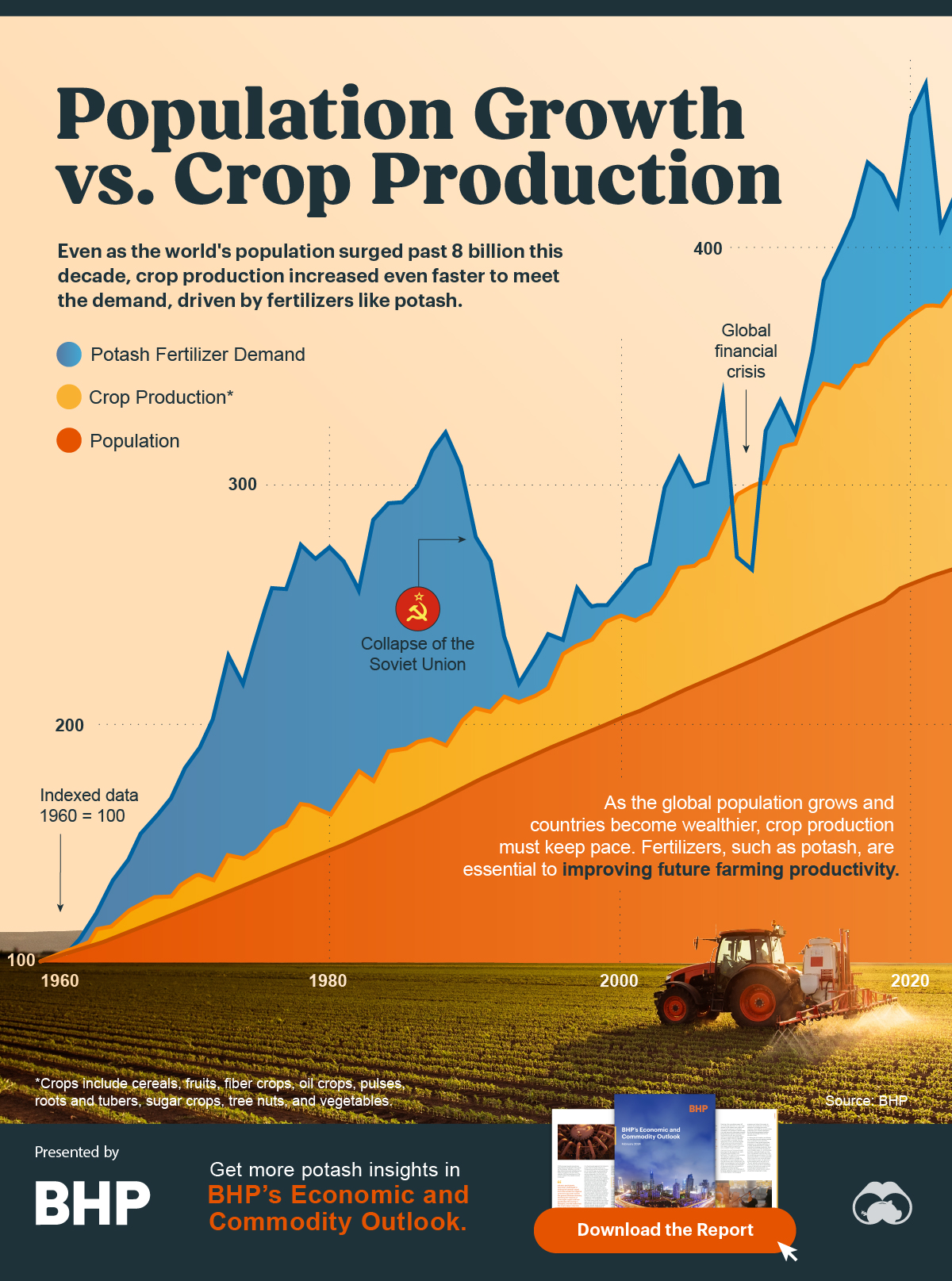
Published
6 hours ago
on
February 26, 2025
| 20 views
-->
By
Selin Oğuz
Graphics & Design
- Zack Aboulazm
The following content is sponsored by BHP
Population Growth, Crop Production, and Fertilizer Use Since 1960
Since 1960, the world’s demand for crops has skyrocketed, fueled by a booming population that now exceeds 8 billion, rising incomes, and expanding uses for agricultural products.
This visualization, created in partnership with BHP, charts the trends of population growth, crop production, and potash demand over six decades.
Six Decades of Growth
The relationship between population growth, crop production, and fertilizer demand is closely interconnected.
The growth rate of these three variables, however, has not been equal.
BHP’s analysis reveals that potash demand has significantly outpaced both crop production and population growth since 1960, highlighting its essential role in feeding a growing global population.
| Metric | CAGR (1960–2007) | CAGR (2008–2023) |
|---|---|---|
| Population | 1.7% | 1.1% |
| Crop Production | 2.2% | 1.7% |
| Potash Fertilizer Demand | 2.6% | 3.0% |
Compound annual growth rate (CAGR) is the average rate at which a value grows annually over a specified period.
The data reveals that despite significant supply disruptions, including the collapse of the Soviet Union—a major potash-producing region—and the 2008 financial crisis, the average annual growth rate of potash demand has consistently surpassed both population growth and crop production.
The Future of Modern Agriculture
By 2050, the global population is expected to reach 9.7 billion, potentially presenting significant challenges in meeting the world’s growing food demands. Farmers are expected to face mounting pressures to produce more food on increasingly limited arable land, making innovation and sustainable practices essential to maximizing yields.
Potash—a potassium-rich mineral used to enhance soil fertility and improve crop yields—can play a pivotal role in addressing these challenges.
In fact, BHP expects global demand for potash to grow by around 70% by 2050, driven by global megatrends such as rising populations, improving living standards, changing diets, and the need to improve the productivity of existing land.

Get more potash insights in BHP’s Economic and Commodity Outlook.
Related Topics: #agriculture #population growth #population #potash #partner #bhp #potash demand
Click for Comments
var disqus_shortname = "visualcapitalist.disqus.com";
var disqus_title = "Population Growth, Crop Production, and Fertilizer Use Since 1960";
var disqus_url = "https://www.visualcapitalist.com/sp/population-growth-crop-production-and-potash-demand-since-1960/";
var disqus_identifier = "visualcapitalist.disqus.com-175177";
You may also like
-
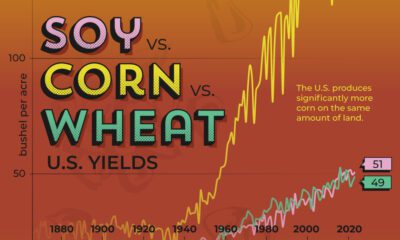
Agriculture5 months ago
Charted: 150 Years of Corn, Wheat, and Soy Yields in America
With nearly 180 bushels of corn grown per acre in 2023, this is the data behind the corny American love story.
-

Agriculture5 months ago
Mapped: Where the World’s Fish Are Caught, by Ocean
One ocean accounts for 60% of the world’s fish catch. Its size isn’t the only reason why fishing thrives there.
-
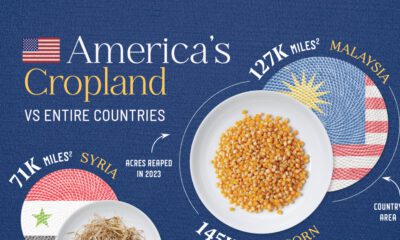
Agriculture5 months ago
How America’s Major Crop Farmlands Compare to Entire Countries
Growing the big four American crops—corn, soybean, hay, and wheat—require farmlands bigger than entire countries.
-
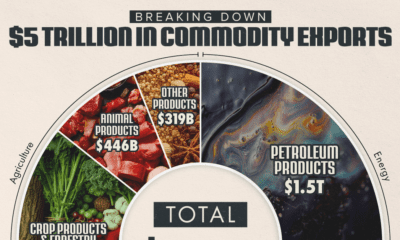
Mining6 months ago
Charted: $5 Trillion in Global Commodity Exports, by Sector
The energy sector accounts for 40% of the value of global commodity exports. And there’s a key product within it that dominates international trade.
-
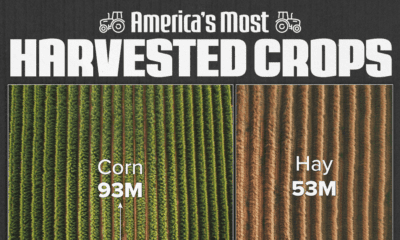
Agriculture6 months ago
Ranked: America’s Top Crops by Acres Harvested in 2023
The area devoted to growing the three top crops is bigger than the size of Texas. But even on that podium there’s only one king.
-
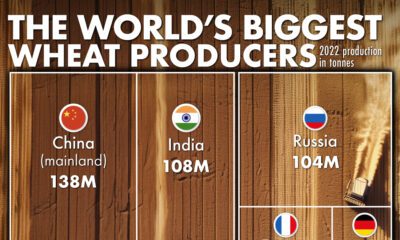
Agriculture8 months ago
Charted: Global Wheat Production, by Country
Wheat production is largely diversified around the world, though three major producers emerge: China, India, and Russia.
Subscribe
Please enable JavaScript in your browser to complete this form.Join the 375,000+ subscribers who receive our daily email *Sign Up
The post Population Growth, Crop Production, and Fertilizer Use Since 1960 appeared first on Visual Capitalist.